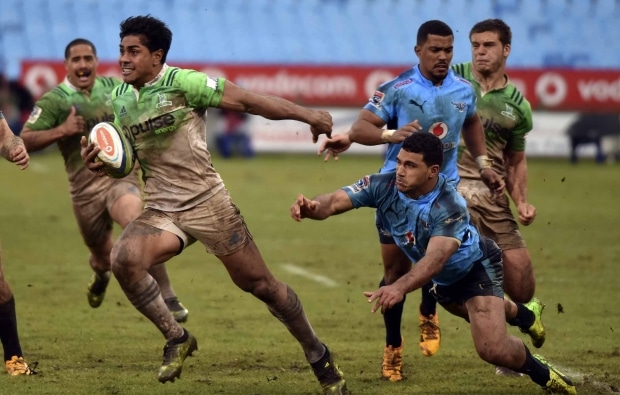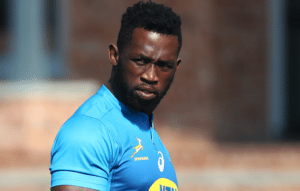The poorly coached Bulls have come to epitomise everything that is wrong with South African rugby, writes JON CARDINELLI.
‘It’s all about culture,’ Saracens captain Brad Barritt told a reporter in the wake of the English club’s 28-17 win in the European Champions Cup final in Edinburgh. With that result, Saracens finished undefeated in Europe for a record second time. More importantly, Saracens became the fourth club in history to successfully defend a European Cup title.
Barritt wasn’t having any talk of records, though. Saracens, stressed the South African-born centre, are not just about the numbers in the win column. The players put their bodies on the line for a jersey and an ideal every week. When they do that, the numbers take care of themselves.
That Barritt spoke these words through a bloody mask was fitting. Few players have bled more for the cause this season. At the very end of the Champions Cup campaign, nobody can question Barritt and indeed Saracens’ commitment.
South African rugby fans have every right to feel ambivalent about Saracens’ success in Europe. It’s wonderful that South Africans such as Barritt and Michael Rhodes, as well as former Springboks like Schalk Burger, Schalk Brits and Vincent Koch are thriving in that professional and forward-thinking environment. At the same time, it makes one realise just how bankrupt some of the local sides are in terms of tactical direction, culture and plain old belief.
2017 has witnessed the nadir of the Bulls’ Super Rugby nightmare. The Bulls have lost seven of their 10 matches to date. The inaugural defeat to the 18th-placed Sunwolves from Japan, as well as the loss to the Cheetahs (the worst-ranked side in South Africa this year) has served to confirm that the Pretoria-based franchise is not stagnating, but regressing at a frighteningly rapid rate.
REVIEW: Super Rugby (Round 12)
Should we judge the Bulls by those numbers? Definitely. A win-record of 30% should never be accepted in a rugby-mad country like South Africa, and certainly not at the most successful Super Rugby franchise outside of New Zealand.
Yet, as Barritt suggested in his post-match speech in Edinburgh on Saturday, more should be read into the quality of a team’s performance when assessing the strength of its culture. Have we seen the Bulls putting their bodies on the line? Are they working for each other on defence? Is there any intelligence behind the collective play and is this enhanced by the leadership?
To state the obvious, the answers to those questions are no, no, and you must be joking.
It’s been plain to see that the players aren’t playing for one another and that they are not playing for their coach. To say Nollis Marais is not getting the best out of this group – which includes a host of Springboks – is an understatement.
Under Marais, the Bulls have become easy beats at the scrums and collisions. Under Marais, the team has conspired to blow routine scoring chances. This has cost the franchise some big results.
This past Saturday was a case in point. Late in the second half, the Highlanders were reduced to 14 men after Waisake Naholo was red-carded. The scoreboard read 10-10 at that stage. Yet, when the Bulls won a penalty under the Highlanders’ posts, captain Hanro Liebenberg opted for a scrum instead of a shot at goal.
Several minutes later, RG Snyman flew into a ruck to take an opposition player out, and was given his marching orders. On both occasions, the discipline and decision-making was found wanting.
The final five minutes of the match at Loftus were a case study in indifference. The Bulls simply refused to tackle in the lead-up to Malakai Fekitoa’s try.
WATCH: Highlights of Bulls vs Highlanders
South African fans have been subjected to these types of performances for the past 18 months. Last year, the Boks looked similarly weak at the gainline and similarly gutless on defence.
Questions were raised over the players’ commitment and fitness in the wake of the humiliating 57-15 loss to the All Blacks at Kings Park. However, by the end of a Test season that witnessed eight losses in 12 games and some of the most insipid displays of the professional era, many critics and fans came to realise that Allister Coetzee and his coaches played a role in cultivating that culture of mediocrity.
SA Rugby has made a mistake in retaining Coetzee ahead of a crucial 2017 Test season. Clearly there are similar problems in the Bulls hierarchy when a coach of Marais’ patent limitations receives ongoing support. The recent results and performances have tarnished the reputation of a once-proud franchise, and a change is long overdue.
Photo: Anne Laing/HM Images





